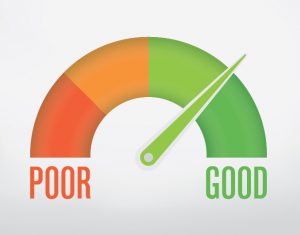 Whether or not you are looking to finance your home, it is always a good idea to make sure your credit profile is as high as it can be. If you are shopping for a home, car or even want to get a low interest credit card, your credit profile is the key to getting the best rate and terms. Your profile and credit score that accompanies it, is something that accumulates over time. It is very hard to change this quickly when you need a loan. Companies that promise this are bogus.
Whether or not you are looking to finance your home, it is always a good idea to make sure your credit profile is as high as it can be. If you are shopping for a home, car or even want to get a low interest credit card, your credit profile is the key to getting the best rate and terms. Your profile and credit score that accompanies it, is something that accumulates over time. It is very hard to change this quickly when you need a loan. Companies that promise this are bogus.
There are three credit bureaus that each calculate your credit score in a slightly different way. The bureaus are TransUnion, Equifax, and Experian. There is a commonality to these calculations, they rely heavily on a history of consistent on-time payments (no late payments) and the proportion of the balance on each credit card to the total credit line for the card.
A few tips on this.
- Consistent on-time payments on a card or loan on which you had a late payment will help balance out the late payment. Also, over time the late payment will have less influence on your score. You should consider having the creditor automatically take the monthly payment from your bank account to avoid forgetting to pay.
- Keep your credit balances low on credit card accounts. Optimally, your balance shouldn’t exceed 40% of your credit limit on each card – having balances exceed 50% will definitely pull down your score. One-time large purchases that you pay off quickly should not have a lasting effect on your score.
If you take advantage of a 12-month, zero percent interest rate offer, and max out your card, this will decrease your score. Just be sure to pay down that balance by the end of the 12 months. Obviously, if you are thinking of getting a loan, you should wait until you get the loan before using the offer.
Note: even if you pay off your balance each month, the bureaus will use the amount that you owe for that month as your balance. If you consistently charge more than 40% of your credit limit, consider using one or two other cards to keep the monthly balance low on each card.
- Pay off small balances on your credit cards. One of the items used in scoring is how many of your cards have balances. The fewer, the better. Use one to three cards for the majority of your purchases. You don’t need to cancel the other cards. However, if you have a large balance on one card, it might be better to do a balance transfer so that the balances do not exceed 40-50% of your credit limit.
- Don’t close old accounts where you have had a good credit history. These can help improve your credit profile. However, if a credit company sends a notice that they are going to close your account because of non-use, and you have no plans to use the account, be sure you request the closure of the account. If your account is closed by the credit card issuer, instead of yourself, this will lower your score.
- This time of year many stores offer incentives for opening their credit cards. When you apply for new credit and have a card that is new for a few months, your credit score will go down. Too many inquires from card companies, even if you don’t get a card, can lower your score. Over time your score will recover. So, if you are planning to get a loan, it’s best to skip new credit until after your loan is closed.
- It is also good to check your credit a couple of times a year. You can catch and correct mis-information that can affect your score. You can get free credit reports from each credit bureau once per year at https://www.annualcreditreport.com. These inquiries will not affect your credit score.
I hope these tips will help you avoid negative surprises.
Until next time have a most enjoyable holiday season.
Your Friendly Lender,
David Kutner

 Whether or not you are looking to finance your home, it is always a good idea to make sure your credit profile is as high as it can be. If you are shopping for a home, car or even want to get a low interest credit card, your credit profile is the key to getting the best rate and terms. Your profile and credit score that accompanies it, is something that accumulates over time. It is very hard to change this quickly when you need a loan. Companies that promise this are bogus.
Whether or not you are looking to finance your home, it is always a good idea to make sure your credit profile is as high as it can be. If you are shopping for a home, car or even want to get a low interest credit card, your credit profile is the key to getting the best rate and terms. Your profile and credit score that accompanies it, is something that accumulates over time. It is very hard to change this quickly when you need a loan. Companies that promise this are bogus.
